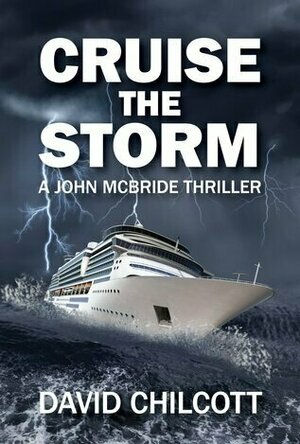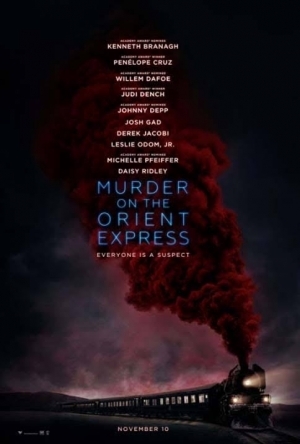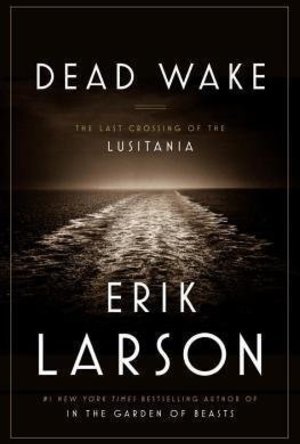
Black Swan Secure Transport
Travel and Lifestyle
App
Papua New Guinea’s first transport app providing secure transport services through the country’s...

Slow Bullets
Book
From the author of the Revelation Space series comes an interstellar adventure of war, identity,...

7 Days In Entebbe (2018)
Movie Watch
7 Days in Entebbe is a 2018 crime thriller film directed by José Padilha and written by Gregory...
True Story Drama International Action Counter Terrorism
Phil Leader (619 KP) rated Cruise the Storm (John McBride #2) in Books
Nov 12, 2019
This might sound like the plot of some Hollywood blockbuster full of explosions and witty one liners from the hero but Chilcott delivers something a lot more cerebral than that. The story and characters have a sense of reality and this is more like a game of chess between the chief hijacker and the crew, a game where the ship is the board and the pawns the passengers which the terrorists are only too willing to dispose of to meet their aims.
Keith Bourne is the founder and leader of the White Christian League, an extreme right wing terrorist organisation who specialise in violent demonstration and the odd mosque burning. Bourne wants cash to further his rather nasty aims and decides that hijacking a cruise liner will fit the bill nicely. MI5 have been watching him and manage to get one of their agents onto the boat in an attempt to thwart Bourne and his cronies.
John McBride is a watercolour artist of some renown who is drafted onto the cruise to teach any interested passengers how to paint in watercolours, the scenes in the various Mediterranean ports they will be visitng being ideal subjects. McBride also happens to be a former member of the elite SAS and when he is made aware of the plot to hijack the ship is able to advise the captain and MI5.
The tension cranks up nicely through the first half of the book, seen mostly from the point of view of Bourne and McBride as each becomes aware of each other and both their plans have to be changed by circumstance. Everything comes to a head on the night the storm hits the ship.
At this point, with everything poised on a knife edge of success or failure for both sides, Chilcott pulls a deft narrative twist and goes back and tells the story again from the point of view of the chairman of the cruise line and one of the passengers, once again building up to the crisis point. This has the nice effect of filling in details that were previously only mentioned but also did lose the momentum which took a while to get going again. It may have been better to tell the story purely sequentially but seeing events from different perspectives again was interesting.
The characters and situations are written with a real authenticity. There are no miraculous escapes, no amazing feats of marksmanship and this is a very real strength of Chilcott's writing. Everthing happens in a way that seems very authentic - and in the case of the actions of the hijackers, worryingly so. Every action and reaction of the characters is plausible and there are frequent points where the story could go one way or another just on a chance encounter or random event.
This realism also felt a little like a weakness to me. Some things happen which provide some dramatic tension at the time but ultimately don't really have a bearing on the eventual outcome. Although this is very much like real life, perhaps it is not what is expected in a thriller of this type. In particlar (and these aren't really spoilers) the ship is damaged in the storm but this doesn't really affect anything, and also what happens when events are told from the point of view of one of the passengers looks to be building to something interesting but ultimately fizzles away. I would have liked to see more of these sub plots carried forward to the end of the story.
Despite this, the book was a good and interesting read and I am looking forward to reading more of Chilcott's McBride novels. I would recommend this book to anyone who likes their thrillers character driven and cerebral rather than all action. Plus you will pick up some excellent tips on painting in watercolours as a bonus.
Rated: Some violence, language and sexual references
Emma @ The Movies (1786 KP) rated Murder on the Orient Express (2017) in Movies
Sep 25, 2019
Once on board Poirot catches the attention of the businessman, Samuel Ratchett. Ratchett has received threatening letters, and wishes to hire the detective as his bodyguard during their journey, but the offer is politely declined.
That night an avalanche derails he train and the passengers are stranded. In the morning Ratchett is found dead, stabbed a dozen times. Poirot and Bouc, the train director, investigate the passengers as repairs begin. Poirot discovers a partially destroyed note connecting Ratchett to the kidnapping of Daisy Armstrong, a child who was abducted from her bedroom and held for ransom. After the ransom was paid, Daisy was found murdered. Ratchett is identified as John Cassetti, Daisy’s kidnapper and murderer.
First off, let me address the elephant in the room... that'll be Kenneth Branagh as Poirot. David Suchet will always be my Poirot, he's perfect. Branagh, for me, has an overacting issue. And that moustache, it's just ridiculous. That's not even taking into account the scene where Poirot is laying in bed and he doesn't have his night-time moustache cosy on. Crazy.
Agatha Christie's tale has definitely been given the Hollywood treatment. It's gone from the quite dark Suchet version, to something quite farcical in comparison. I can understand remaking some things, but when you have such a definitive portrayal of a character why would you recast them?
Having just rewatched the 2010 version I will say that the story line in the movie is probably easier to understand. It's also more suitable for a younger audience.
As a passing comment to everyone who was surprised to hear they were going to do Death On The Nile next... no shit, Poirot! It was dropped in at the end of the film.

Offroad Bus Driving Parking Simulator Pro 2016
Games and Entertainment
App
Bus games are very popular, specially picking up and dropping of the passengers and tourist from...

McPanda: Super Pilot
Entertainment and Games
App
A great open-world game for kids. With this app you can fly exciting missions, experience great...

Bus Simulator 2017 - City Coach Bus Driving 3D
Games
App
City Bus Driving Simulation is an extended game and a real time experience for those gamers who...
Suswatibasu (1703 KP) rated Around The World in 80 Days in Books
Nov 20, 2017
The trip was intended to follow the route traveled by Phileas Fogg in Jules Verne's novel from 1872. The self-imposed rule was that airplane travel was not allowed so only trains, buses, ships and cars could be used. This was problematic for Michael Palin because in 1872 there were many passenger ship lines, while in 1988 there were almost none because of air travel. As a result he had to obtain passage on various cargo and container ships that normally don't accept passengers.
The large amount of sea travel is a negative aspect because it's limited how many interesting things can be done aboard a container ship, for example. In fact, a significant number of the 80 days are spent on board ships, and it gets rather boring.
However, it is a very human account of a famous journey.



